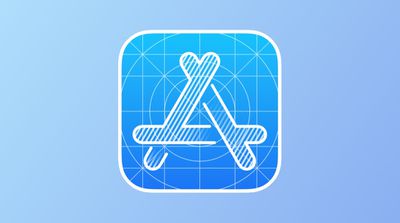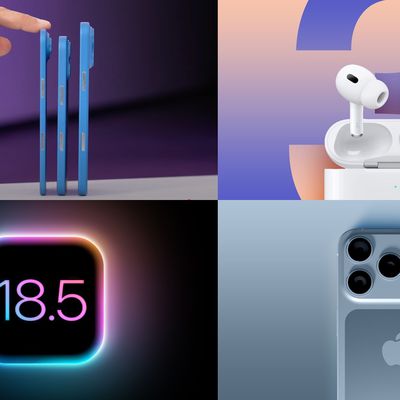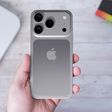Apple Says COVID 'Health Pass' Apps Are Limited to Developers Working With Public Health Authorities
Apple today informed developers that "health pass" apps can only be submitted by developers that are working with recognized public health authorities.

A "health pass" app is classified as an app that generates a pass that's used to enter buildings and access in-person services based on testing and vaccination records.
Apple says that to make sure these apps are responsibly handling sensitive data and providing reliable functionality, they're being limited to developers work with test kit manufacturers, laboratories, and healthcare providers.
With the recent release of COVID-19 vaccines, we've seen an increase in apps that generate health passes used to enter buildings and access in-person services based on testing and vaccination records. To ensure these apps responsibly handle sensitive data and provide reliable functionality, they must be submitted by developers working with entities recognized by public health authorities, such as test kit manufacturers, laboratories, or healthcare providers. As with other apps related to COVID-19, we also accept apps submitted directly by government, medical, and other credentialed institutions.
Apple has been restricting COVID 19-related apps since March. Apps providing data on COVID must be submitted by developers working with recognized entities such as government organizations, health-focused NGOs, companies deeply credentialed in health issues, and medical or educational institutions. Apple does not allow COVID 19-themed entertainment or game apps, nor any other app not submitted by a qualified developer.
Note: Due to the political or social nature of the discussion regarding this topic, the discussion thread is located in our Political News forum. All forum members and site visitors are welcome to read and follow the thread, but posting is limited to forum members with at least 100 posts.
Popular Stories
While the iPhone 17 Pro and iPhone 17 Pro Max are not expected to launch until September, there are already plenty of rumors about the devices.
Below, we recap key changes rumored for the iPhone 17 Pro models as of April 2025:
Aluminum frame: iPhone 17 Pro models are rumored to have an aluminum frame, whereas the iPhone 15 Pro and iPhone 16 Pro models have a titanium frame, and the iPhone ...
While the so-called "iPhone 17 Air" is not expected to launch until September, there are already plenty of rumors about the ultra-thin device.
Overall, the iPhone 17 Air sounds like a mixed bag. While the device is expected to have an impressively thin and light design, rumors indicate it will have some compromises compared to iPhone 17 Pro models, including only a single rear camera, a...
This week marks the 10th anniversary of the Apple Watch, which launched on April 24, 2015. Yesterday, we recapped features rumored for the Apple Watch Series 11, but since 2015, the Apple Watch has also branched out into the Apple Watch Ultra and the Apple Watch SE, so we thought we'd take a look at what's next for those product lines, too.
2025 Apple Watch Ultra 3
Apple didn't update the...
If you missed the video showing dummy models of Apple's all-new super thin iPhone 17 Air that's expected later this year, Sonny Dickson this morning shared some further images of the device in close alignment with the other dummy models in the iPhone 17 lineup, indicating just how thin it is likely to be in comparison.
The iPhone 17 Air is expected to be around 5.5mm thick – with a thicker ...
Despite being more than two years old, Apple's AirPods Pro 2 still dominate the premium wireless‑earbud space, thanks to a potent mix of top‑tier audio, class‑leading noise cancellation, and Apple's habit of delivering major new features through software updates. With AirPods Pro 3 widely expected to arrive in 2025, prospective buyers now face a familiar dilemma: snap up the proven...
When an iPad running iPadOS 19 is connected to a Magic Keyboard, a macOS-like menu bar will appear on the screen, according to the leaker Majin Bu.
This change would further blur the lines between the iPad and the Mac. Bloomberg's Mark Gurman previously claimed that iPadOS 19 will be "more like macOS," with unspecified improvements to productivity, multitasking, and app window management,...
We've known for quite some time about Apple's plans for a thinner "iPhone 17 Air" coming later this year, but wow, the latest dummy models give us our best look yet at just how thin this phone is going to be.
Other Apple news and rumors this week included another iOS 18.5 beta, the 10th anniversary of the Apple Watch launch, and more management reshuffling in Apple's Siri division, so read...
Starting today, April 24, Apple Stores around the world are giving away a special pin for free to customers who request one, while supplies last.
Photo Credit: Filip Chudzinski
The enamel pin's design is inspired by the Global Close Your Rings Day award in the Activity app, which Apple Watch users can receive by closing all three Activity rings today. The limited-edition pin is the physical...























